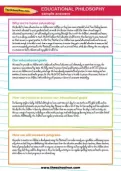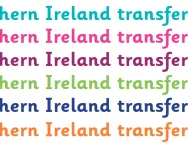Important update from TheSchoolRun
For the past 13 years, TheSchoolRun has been run by a small team of mums working from home, dedicated to providing quality educational resources to primary school parents. Unfortunately, rising supplier costs and falling revenue have made it impossible for us to continue operating, and we’ve had to make the difficult decision to close. The good news: We’ve arranged for another educational provider to take over many of our resources. These will be hosted on a new portal, where the content will be updated and expanded to support your child’s learning.
What this means for subscribers:
- Your subscription is still active, and for now, you can keep using the website as normal — just log in with your usual details to access all our articles and resources*.
- In a few months, all resources will move to the new portal. You’ll continue to have access there until your subscription ends. We’ll send you full details nearer the time.
- As a thank you for your support, we’ll also be sending you 16 primary school eBooks (worth £108.84) to download and keep.
A few changes to be aware of:
- The Learning Journey weekly email has ended, but your child’s plan will still be updated on your dashboard each Monday. Just log in to see the recommended worksheets.
- The 11+ weekly emails have now ended. We sent you all the remaining emails in the series at the end of March — please check your inbox (and spam folder) if you haven’t seen them. You can also follow the full programme here: 11+ Learning Journey.
If you have any questions, please contact us at [email protected]. Thank you for being part of our journey it’s been a privilege to support your family’s learning.
*If you need to reset your password, it will still work as usual. Please check your spam folder if the reset email doesn’t appear in your inbox.
Home education and the law in Northern Ireland

As in the other three countries in the UK, parents in Northern Ireland have the right to home educate their children. This includes parents of children with special educational needs (SEN). You don't need any teaching qualifications or experience, and there's no obligation to follow the Northern Ireland Curriculum or enter your child for national tests.
The relevant law says:
The parent of every child of compulsory school age shall cause him to receive efficient full-time education suitable to his age, ability and aptitude and to any special educational needs he might have, either by regular attendance at school or otherwise.
Giving notice of your plans to home educate in Northern Ireland
You don’t need anyone's permission to home educate your child, but if they're already attending school and you want to remove them, you'll need to write to the head teacher to let them know that you're de-registering them. This also applies if your child has a statement of special educational needs and attends a mainstream primary school.
If you're planning to start home educating as soon as your child reaches compulsory school age, you don't even need to apply for a school place for them. Simply disregard any forms that you're sent.
If your child attends a special school you'll need to notify your local education authority (EA) of your intention to remove them from school. Technically, they can refuse, but in practice this is just a formality.


Free home education planning pack & resources
- Guidance, templates and advice to get you started
- Practical tips from experts and parents
- How to establish a routine and set learning goals
Home education if you're divorced
Either parent can exercise their right to home educate their child without the other parent’s consent. This can be challenged in court by the other parent, though.
Providing evidence about home education
At the moment, parents aren't legally required to provide any evidence of their home education provision to their local EA, and they don't have to follow school hours or terms. However, the EA can make what's known as an 'informal enquiry' to check you are providing a suitable education for your child, as decribed by the Education Act 1986. Some of the ways in which you can demonstrate this include:
- A written report
- Providing samples of your child's work
- Arranging a home visit from an EA officer, with or without your child being present
- Arranging a meeting with an EA officer outside the home.
Will you have to be inspected, and if so, by whom?
Currently, there's some controversy over the way in which home educating parents are inspected in Northern Ireland. The five different EAs have different policies, some more stringent than others, but are proposing a new universal set of guidelines that could see families being visited by an EA officer on an annual basis to check on progress.
At the moment, EAs have no legal authority to insist on visiting you at home or making you attend monitoring meetings outside the home. The campaign group Home Education Northern Ireland (HEdNI) advises that although you shouldn't ignore any communications from the EA, you can respond however you see fit – for example, by providing a written report about how you're educating your child rather than agreeing to a visit.
If the EA is concerned that you're not providing a suitable education, or has worries about the welfare of a child, they can serve a School Attendance Order which compels you to send your child to school or face a fine.
Does the process vary across Northern Ireland?
Yes – the law is the same for all five regions but local authorities have formulated their own policies. For example, some contact home educators annually; others only assess their provision once. You can contact the EA in your area here.








